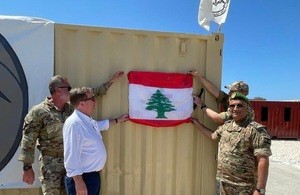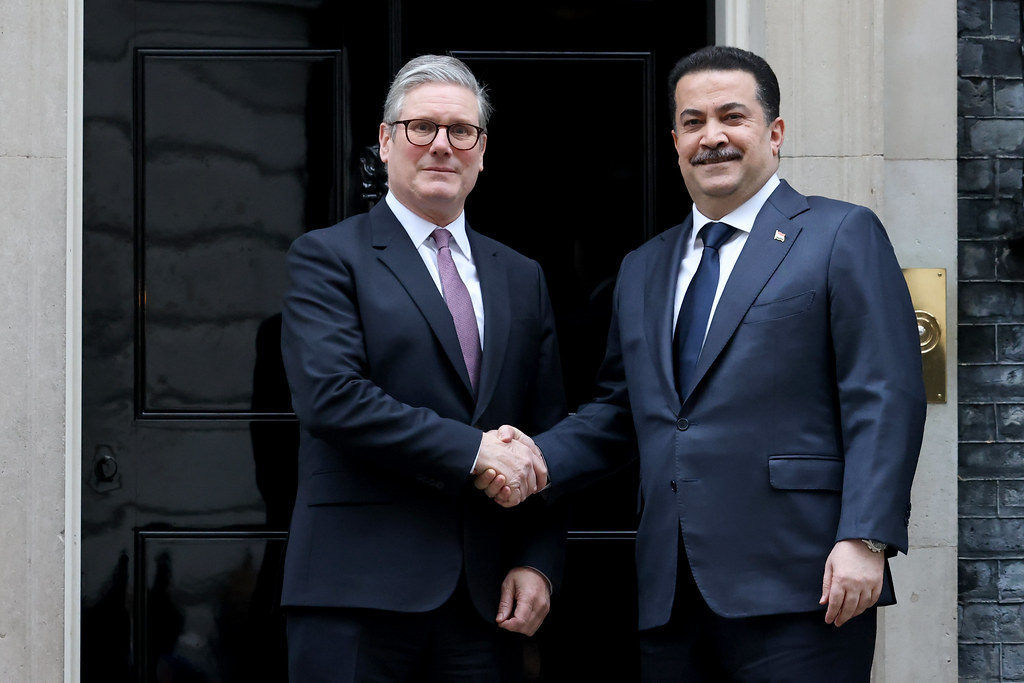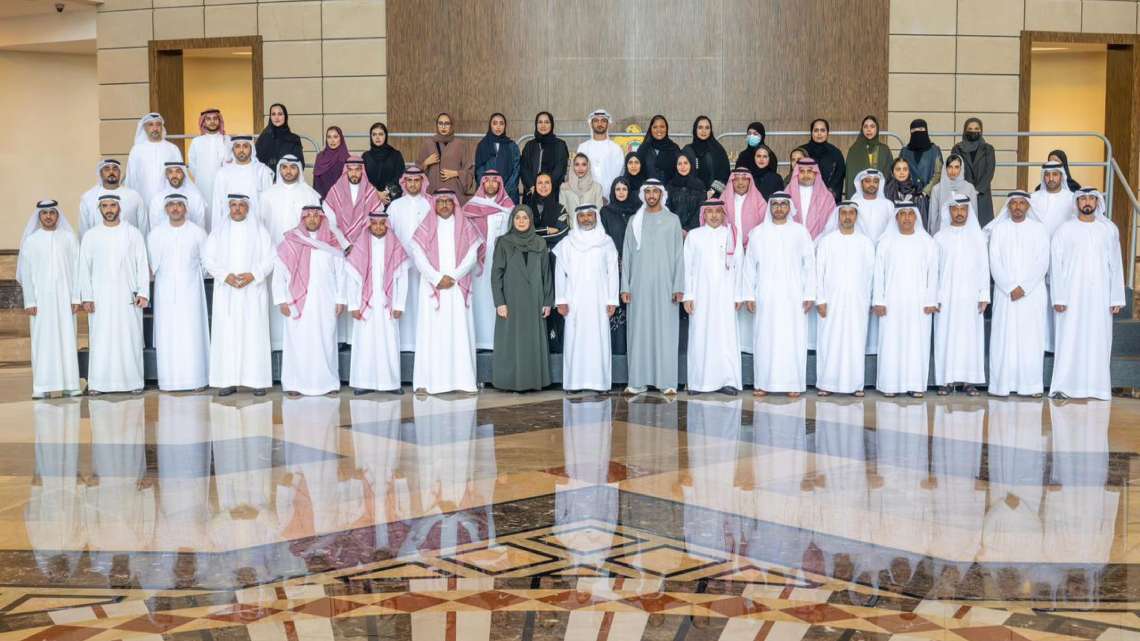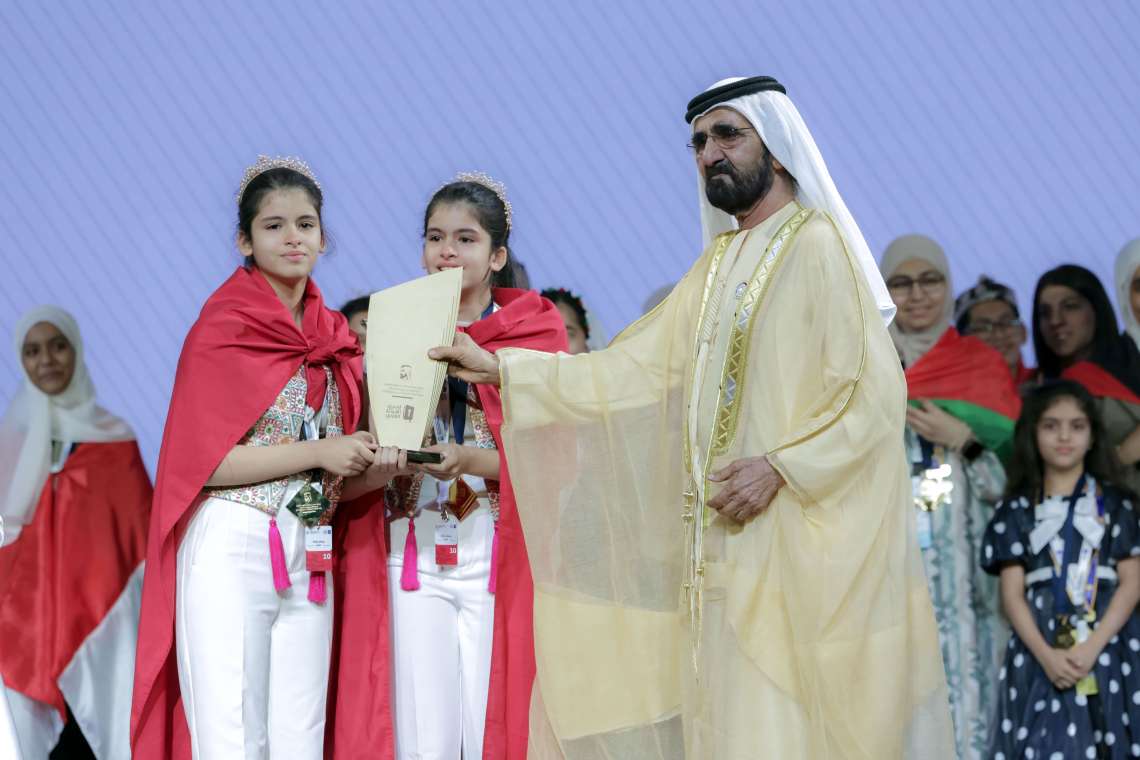The facility upgraded through the UK’s Integrated Security Fund, will serve as a vital training facility for LAF troops deployed across South Lebanon…reports Asian Lite News
The United Kingdom has reinforced its long-standing security partnership with Lebanon by funding and inaugurating a newly upgraded training facility for the Lebanese Armed Forces (LAF) in Zahrani, South Lebanon.
The project, backed through the UK Government’s Integrated Security Fund, was officially opened on Wednesday, 20 August, by the British Ambassador to Lebanon, Hamish Cowell. The facility is expected to play a central role in preparing LAF troops for operational deployments across South Lebanon, strengthening the country’s security infrastructure amid ongoing regional challenges.
Alongside the new training complex, the UK has also provided 1,000 sets of Personal Protection Equipment (PPE) for LAF soldiers, aimed at ensuring their safety during critical duties.
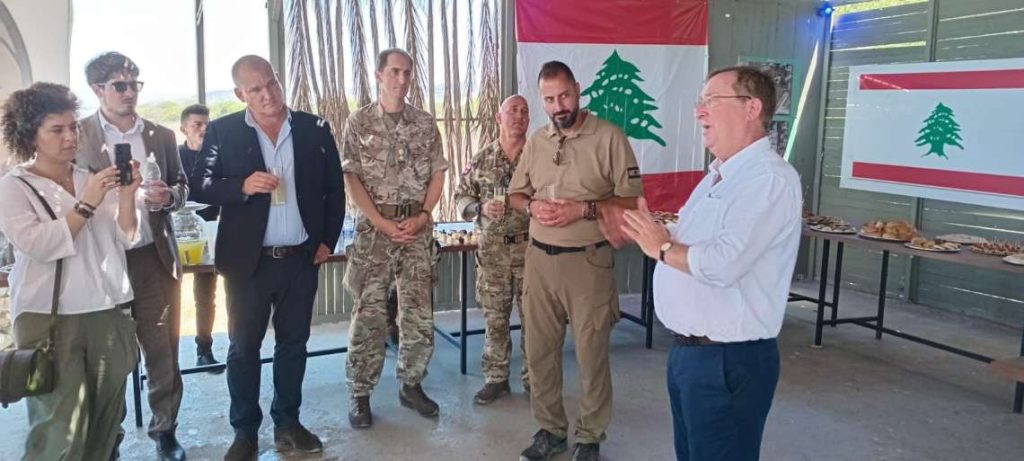
The inauguration ceremony brought together senior Lebanese and British officials. Ambassador Cowell was joined by the Head of the LAF’s Second Intervention Regiment, British Defence Attaché Lieutenant Colonel Charles Smith, Deputy Head of the UK Integrated Security Fund James Barber, and Head of Programme Sarah Kronfol.
Addressing attendees, Cowell hailed the opening of the upgraded facility as a milestone in bilateral cooperation.
“I am honoured to inaugurate the newly upgraded training facility in Zahrani – a testament to our enduring partnership and shared vision for a safer Lebanon,” he said. “The role of the Lebanese Armed Forces is more vital than ever in safeguarding Lebanon and its people. Our support is designed to strengthen LAF resilience, address critical infrastructure needs and enable their permanent, and sustainable presence in South Lebanon.”
He added that the UK would “stand shoulder-to-shoulder” with Lebanon and its national army as they seek to secure stability during a period of mounting pressures.
Britain’s financial and technical support for the LAF has expanded significantly in recent years. Since the start of 2024, the UK has committed more than £17 million to strengthen the Lebanese Army’s deployment capacity, particularly in the south of the country. The funding is designed to reinforce the LAF’s position as the sole legitimate military force of the Lebanese state, in line with United Nations Security Council resolutions, and to support its resilience nationwide.
The new Zahrani facility represents the latest stage in a wider programme of assistance stretching back over a decade. Since 2013, the UK has worked with the LAF’s Land Border Regiments, which patrol the frontier with Syria, to build fortified watchtowers, provide training, and supply vehicles and equipment. The aim has been to extend Lebanese state authority, curb illegal cross-border activity, and protect vulnerable communities.
According to officials, the upgraded training centre in Zahrani will allow the LAF to carry out more advanced exercises and prepare units for complex missions in the south, where they are deployed in coordination with the United Nations Interim Force in Lebanon (UNIFIL).
Lebanon has faced mounting instability in recent years, grappling with economic collapse, political paralysis, and the spillover of regional conflicts. The LAF is widely regarded by the international community as a unifying institution and a critical pillar of the state, enjoying broad public trust at a time when many of the country’s institutions are under strain.
British diplomats and defence officials argue that sustained international support for the army is essential to maintain stability, particularly in southern Lebanon, where tensions periodically flare along the border with Israel. By investing in training facilities, equipment, and infrastructure, the UK hopes to enable the LAF to sustain a permanent, professional presence in the region.
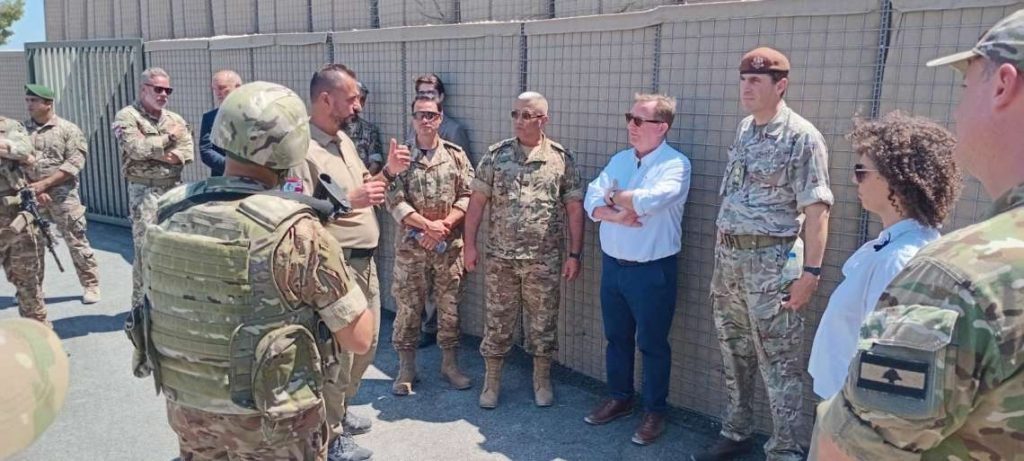
Speaking after the event, Cowell stressed the importance of building long-term resilience rather than temporary fixes. “Our partnership is not about short-term interventions but about enabling the Lebanese Armed Forces to play their rightful role as guarantors of national security. This training facility will help prepare soldiers for the challenges they face and reinforce their ability to protect their people,” he said.
For London, the upgraded facility also carries symbolic weight, underlining Britain’s enduring commitment to Lebanon’s security despite its own domestic and foreign policy pressures. UK officials view their support as part of a broader strategy to help Lebanon stabilise, prevent conflict spillover, and counter the influence of non-state armed groups.
The ceremony in Zahrani was therefore more than a ribbon-cutting event: it was intended to showcase the UK’s position as one of Lebanon’s closest international partners in the security field. The British Embassy emphasised that future cooperation would continue to focus on infrastructure, training, and equipment provision, tailored to the evolving needs of the LAF.
As Lebanon confronts an uncertain future, marked by economic difficulties and fragile politics, the role of the LAF is expected to become even more central. With international backers such as the UK continuing to invest in its capacity, the army is being positioned as a stabilising force in an environment where state authority remains contested.
For communities in South Lebanon, the new Zahrani training centre represents a tangible sign of international support and a practical step towards ensuring that the LAF can carry out its mandate more effectively.
As Cowell concluded during the ceremony: “The UK is committed to supporting security and stability in Lebanon, standing shoulder-to-shoulder with the LAF and the nation they protect.”

